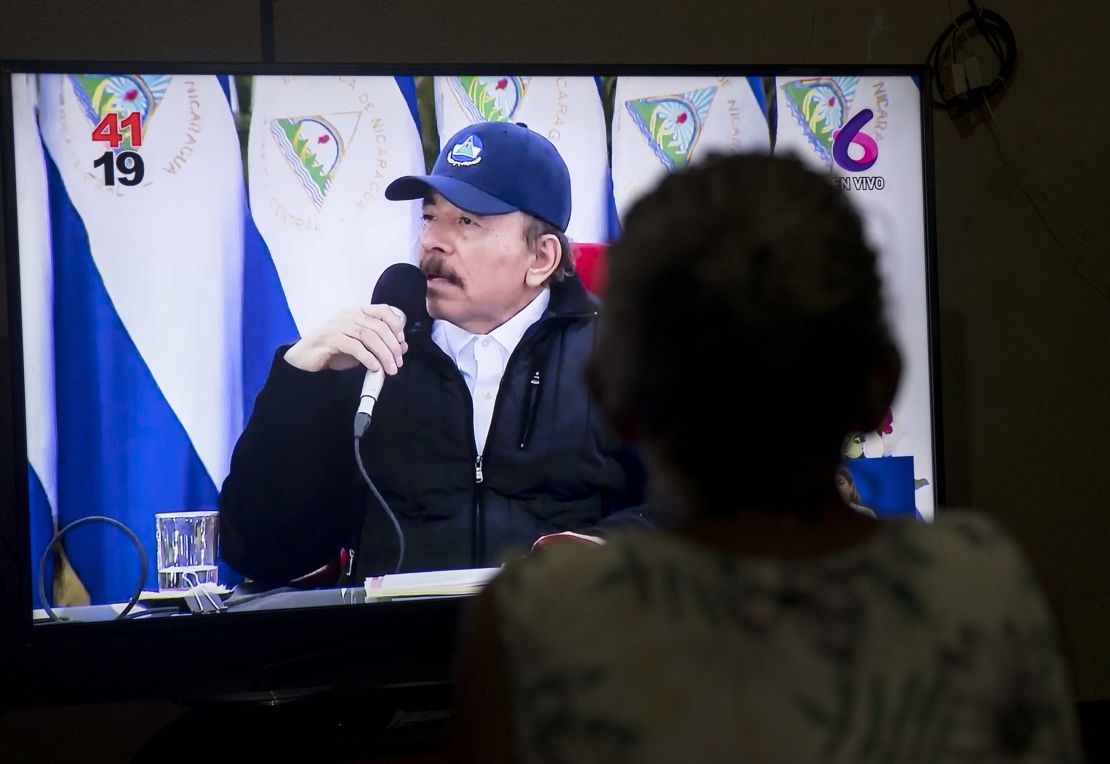As much of Latin America wrestles with the social and economic impact of Covid-19, the government of Nicaragua says it’s got the virus under control.
On Sunday, Nicaraguan President Daniel Ortega made a rare appearance, at which the leftist leader announced that the country’s death toll was low and that the pandemic had not affected Nicaragua’s health system – as had happened in “capitalist” countries.
Ortega said agricultural output had not suffered from the pandemic and commended “the hard-working spirit of the Nicaraguan, the hard-working spirit of the peasants, who in the worst moments have not stopped producing.”
But experts in the country and abroad warn that Ortega’s government is hiding the true extent of infections, and that – despite Nicaragua’s refusal to shut down the economy – poverty and unemployment could rise dramatically this year.
Only 108 Nicaraguans have died from the coronavirus and just 3,439 have been infected in this country of 6 million, Nicaragua’s Ministry of Health reported Tuesday. But those figures aren’t convincing to international health experts or local epidemiologists.
Rival calculations made by a group of Nicaraguan epidemiologists, medical professionals and students known as the Covid-19 Citizen Observatory suggest that the number of Covid-19 cases has already topped 8,500. The group has also counted 2,397 suspected Covid-19 deaths – 22 times the official tally.
The Pan-American Health Organization (PAHO), the regional arm of the World Health Organization, says the government’s data lacks transparency and that, in the absence of updated and transparent information from the government, unofficial data sources like the citizen observatory should be taken into account.
Official data is only published weekly, and Nicaragua has not provided detailed statistics on the age, sex and location of those infected, nor on testing, Dr Ciro Ugarte, PAHO’s Director of Health Emergencies, told CNN.
“The lack of proper information does not allow (us) to properly assess the situation in Nicaragua,” he said, adding that PAHO had offered to send a group of experts to assist with Nicaragua’s coronavirus response, but had received no answer.
The organization’s concerns go back at least four months. In April, its director, Dr Carissa Etienne, said PAHO was worried by the lack of testing, contact tracing and case reporting in Nicaragua, as well as its weak disease prevention and control measures.

That same month, several epidemiologists wrote in the medical journal the Lancet that Nicaragua’s response to the pandemic has been “perhaps the most erratic of any country in the world to date.” They noted that the government had recommended self-quarantine for travelers from some countries but had not restricted travel, closed borders or suspended public events.
Ortega’s wife and Vice President Rosario Murillo even urged citizens to congregate under the slogan: “Love in the time of COVID-19.”
Ortega’s remarks on Sunday - the 41st anniversary of the Sandinista revolution – marked his first public appearance for more than a month. At the start of the pandemic, he stayed out of sight for more than 40 days, even as his government insisted that normal life and business must continue.
Businesses in Nicaragua have continued to operate, festivals and cultural events are happening on an almost-weekly basis, and schools remain open, as CNN has previously reported. The government’s website Tuesday showed images of children in masks lined up for the beginning of the new term and social distancing in classrooms.
But as with coronavirus data, the diagnosis for Nicaragua’s economic health under this strategy is disputed.
The United Nations predicts that unemployment will exceed 9% in Nicaragua this year, as a result of the pandemic, and that the number of Nicaraguans living in extreme poverty will rise this year from 17% to 22% – nearly a quarter of the whole population.
Ortega on Sunday insisted that the revolution was strong, investments in the health sector were continuing and that “the worst epidemic is hunger and wild capitalism.”


